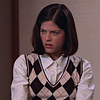Take a photo of a barcode or cover
challenging
emotional
hopeful
sad
slow-paced
What can I say about something so heartbreaking yet defiantly hopeful?
Select quotes:
“In Gaza you don't know what you're guilty of. It feels like living in a Kafka novel.”
“I weave my poems with my veins. I want to build a poem like a solid home, but hopefully not with my bones.”
“My son's name is Yazzan. He was born in 2015, or a year after the 2014 war. This is how we date things. Once he saw a swarm of clouds. He shouted, "Dad, some bombs. Watch out!" He thought the clouds were bomb smoke. Even nature confuses us.”
“Through it all, the strawberries have never stopped growing.”
“And when we die,
our bones will continue to grow,
to reach and intertwine with the roots of the olive
and orange trees, to bathe in the sweet Yaffa sea.
One day, we will be born again when you're not here.
Because this land knows us. She is our mother.
When we die, we are just resting in her womb
until the darkness is cleared.”
“I will collect seashells and pebbles to build a house
for us on the beach until you come.
I don't know how many houses I will have built
before you come.
I'm afraid I will rebuild Gaza by then.”
“The Israelis had used a nail bomb in the attack.
As a child, I never knew nails could kill people.
I thought they were only used in construction.
I was fooled.”
“Why is it when I dream of Palestine,
that I see it in black and white?”
“Don't ever be surprised
to see a rose shoulder up
among the ruins of the house:
This is how we survived.”
The interview with the author Mosab Abu Toha at the end of the book is fantastic. I was especially struck by two particular sections. The first is where he describes that reading poetry for him is not an escape, but rather a return to a reality that's actually there. For example, he would read a European poet describe a lemon and remark that it resembled a lemon he himself was holding. In that sense, poetry grounds us in some sense of common humanity. The other is a response where he is describing how Israelis bombed his university and destroyed the English department, and that the first book he was able to pull out from the rubble was the Norton Anthology of American Literature. He then remarks on the irony of how Palestinians study and love American writings but then are bombed by weapons made and funded by America.
Free Palestine.
Select quotes:
“In Gaza you don't know what you're guilty of. It feels like living in a Kafka novel.”
“I weave my poems with my veins. I want to build a poem like a solid home, but hopefully not with my bones.”
“My son's name is Yazzan. He was born in 2015, or a year after the 2014 war. This is how we date things. Once he saw a swarm of clouds. He shouted, "Dad, some bombs. Watch out!" He thought the clouds were bomb smoke. Even nature confuses us.”
“Through it all, the strawberries have never stopped growing.”
“And when we die,
our bones will continue to grow,
to reach and intertwine with the roots of the olive
and orange trees, to bathe in the sweet Yaffa sea.
One day, we will be born again when you're not here.
Because this land knows us. She is our mother.
When we die, we are just resting in her womb
until the darkness is cleared.”
“I will collect seashells and pebbles to build a house
for us on the beach until you come.
I don't know how many houses I will have built
before you come.
I'm afraid I will rebuild Gaza by then.”
“The Israelis had used a nail bomb in the attack.
As a child, I never knew nails could kill people.
I thought they were only used in construction.
I was fooled.”
“Why is it when I dream of Palestine,
that I see it in black and white?”
“Don't ever be surprised
to see a rose shoulder up
among the ruins of the house:
This is how we survived.”
The interview with the author Mosab Abu Toha at the end of the book is fantastic. I was especially struck by two particular sections. The first is where he describes that reading poetry for him is not an escape, but rather a return to a reality that's actually there. For example, he would read a European poet describe a lemon and remark that it resembled a lemon he himself was holding. In that sense, poetry grounds us in some sense of common humanity. The other is a response where he is describing how Israelis bombed his university and destroyed the English department, and that the first book he was able to pull out from the rubble was the Norton Anthology of American Literature. He then remarks on the irony of how Palestinians study and love American writings but then are bombed by weapons made and funded by America.
Free Palestine.
Wow. At a loss for words overall. This is one of those books you NEED to read in your lifetime, and reread, and reread.
From Gaza, poems that were timely in 1948, 1967, 2014, 2021, all the years in between, and of course, today. So beautiful & powerful, yet also very heartbreaking.
Maybe more detailed review to come (?)
From Gaza, poems that were timely in 1948, 1967, 2014, 2021, all the years in between, and of course, today. So beautiful & powerful, yet also very heartbreaking.
Maybe more detailed review to come (?)
challenging
emotional
reflective
fast-paced
reflective
sad
medium-paced
challenging
emotional
inspiring
reflective
sad
tense
fast-paced
medium-paced
challenging
emotional
informative
inspiring
reflective
sad
A beautiful and poignant poetry collection about life in Gaza. An important read.
These were such beautiful and heartbreaking poems on Palestine
emotional
hopeful
reflective
sad
fast-paced








